Social Inequality

What is the relationship between social inequality and access to resources for climate adaptation ?
The relationship between social inequality and access to resources for climate adaptation is influenced by economic, social, and political factors. Wealthier individuals often have more resources, while marginalized groups may face discrimination. Education plays a crucial role in raising awareness about climate change, and cultural beliefs can impact adaptation strategies. Government policies can either exacerbate or mitigate social inequality, and participatory decision-making processes are essential for equitable resource allocation. Addressing social inequality requires equitable resource allocation, capacity building, community-driven approaches, and targeted interventions for vulnerable populations.

How does vaccine inequality impact developing countries ?
Vaccine inequality significantly impacts developing countries by affecting their public health, economy, and social stability. Limited access to vaccines increases mortality and morbidity rates, weakens healthcare systems, and leads to economic losses and limited growth. It also exacerbates poverty and inequality and can contribute to social unrest and instability. Addressing vaccine inequality is crucial for global health equity and sustainable development.

What is the impact of climate change on poverty and inequality, as addressed by the SDGs ?
Climate change exacerbates poverty and inequality by affecting livelihoods, food security, and displacement. Wealthier individuals and countries are better equipped to cope with climate change, leading to wider economic disparities. The Sustainable Development Goals aim to address these issues through goals related to poverty, hunger, inequality, and climate action.

What measures can be taken to reduce income inequality in low-income countries ?
The text discusses measures to reduce income inequality in low-income countries. It covers topics such as education and training, economic policies, labor market interventions, social safety nets, land reforms, governance and anti-corruption measures, and international cooperation. The measures include improving access to quality education, implementing progressive tax systems, creating minimum wage laws, developing effective social assistance programs, implementing land reform policies, strengthening institutional capacity to combat corruption, and seeking foreign direct investment that aligns with sustainable development goals.

How does climate change disproportionately affect children from low-income or marginalized communities, and what can be done to address this inequality ?
Climate change disproportionately impacts children from low-income or marginalized communities, affecting their health, food security, housing stability, and education. To address this inequality, actions such as investing in renewable energy, improving public health infrastructure, providing financial support for displaced families, encouraging sustainable agriculture practices, and promoting environmental education are necessary.

What are the benefits of social inclusion for individuals and society as a whole ?
Social inclusion benefits individuals and society by promoting equality, diversity, and participation. Individuals experience enhanced quality of life, greater opportunities, improved mental health, increased self-esteem, and strengthened social support networks. Society benefits from economic growth, reduced poverty and inequality, improved public services, enhanced social cohesion, increased civic engagement, promotion of human rights, a positive global image, and intergenerational equity.

How will automation affect employment in the coming years ?
Automation is expected to have a significant impact on employment in the coming years, with potential job displacement and income inequality challenges. However, it also presents opportunities for job creation and a shift towards more creative and analytical roles. Skills such as creativity, critical thinking, and emotional intelligence will become increasingly valuable, while continuous learning and adaptability will be crucial for workers to stay relevant. Policy interventions are necessary to mitigate inequality and support an adaptable and resilient workforce.
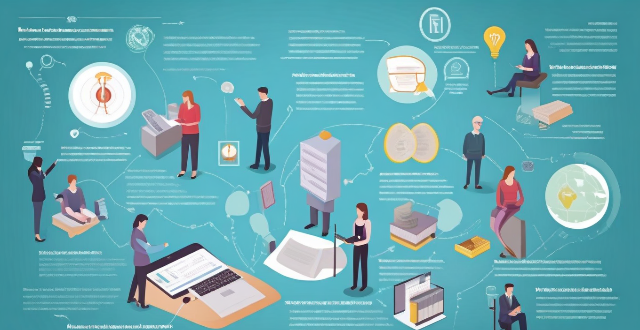
How can we address the intersectionality of climate change and gender inequality ?
Addressing the intersectionality of climate change and gender inequality requires a comprehensive approach that considers both environmental and social dimensions. Key points include recognizing the intersectionality, including women in decision-making processes, promoting gender-sensitive climate policies, supporting women's access to education and empowerment, ensuring access to sustainable energy and resources, addressing gender-based violence, and fostering collaboration and partnerships. By taking these steps, we can work towards a more equitable and sustainable future for all.

What are the key factors that contribute to social harmony ?
Social harmony is a state of peaceful coexistence and cooperation among individuals, groups, and communities within a society. Key factors contributing to social harmony include respect for diversity, communication and dialogue, education and awareness, equality and fairness, law and order, civic participation and volunteerism, and economic stability and prosperity. By promoting these factors, societies can create a more peaceful and cooperative environment where everyone can thrive.

What is social inclusion and why is it important ?
Social inclusion refers to the process of ensuring that all individuals can participate in all aspects of society. It aims to create a society where everyone feels valued, regardless of their background. Key elements include equal opportunities, non-discrimination, participation, empowerment, and solidarity. Social inclusion is important for promoting equity and fairness, enhancing economic growth, improving health and well-being, reducing poverty and exclusion, enhancing social cohesion, and supporting sustainable development.
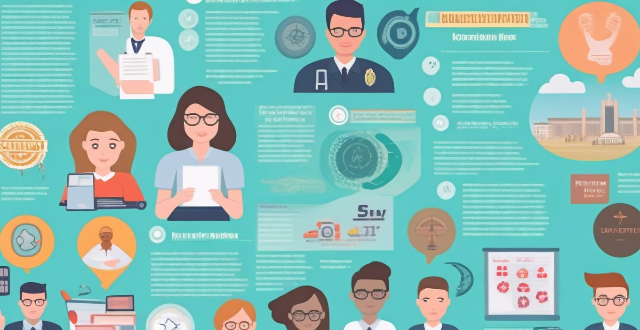
How does educational equity relate to social justice ?
Educational equity and social justice are interconnected concepts that aim to create a fair and just society. Educational equity involves providing equal opportunities for learning and addressing disparities in resources, funding, and support services between schools or communities. Social justice encompasses policies and practices that ensure everyone has equal rights, opportunities, and access to resources while eliminating discrimination based on various factors. The relationship between educational equity and social justice includes addressing systemic inequalities within the education system, providing access to quality education for all students, promoting diversity and inclusion, and empowering students to become agents of change in their communities. By achieving educational equity, we can work towards creating a more just and equitable society.
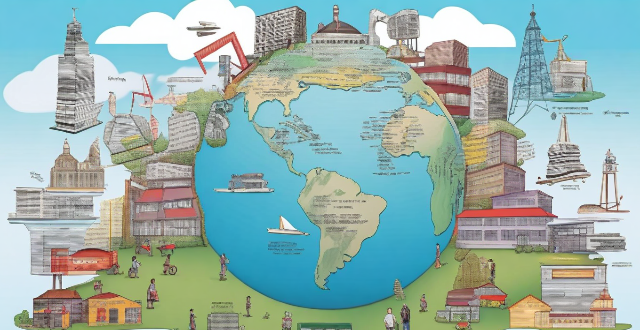
How can international education help address global issues like climate change and inequality ?
International education plays a crucial role in addressing global issues by promoting cross-cultural understanding, enhancing global citizenship, building networks and partnerships, promoting sustainable development through curriculum changes and research initiatives focused on sustainability principles, and encouraging collaboration among individuals and organizations from around the world.

What are some successful examples of promoting social harmony globally ?
Successful Examples of Promoting Social Harmony Globally: UN, EU, AU, ASEAN

How do women-specific NGOs measure their impact on reducing poverty and inequality ?
This article explores how women-specific NGOs measure their impact on reducing poverty and inequality by focusing on key metrics such as economic empowerment, education and skill development, health and well-being, and gender equality and empowerment. It also highlights successful NGOs like Women's World Banking, Room to Read, and International Planned Parenthood Federation (IPPF) that use data collection tools to track progress towards their goals.

How can we achieve climate justice in a world with increasing inequality ?
Achieving climate justice in a world with increasing inequality requires strengthening international cooperation, advocating for environmental justice, investing in renewable energy, implementing circular economy principles, establishing legal frameworks, promoting education and awareness, supporting sustainable agriculture, and fostering urban sustainability. These strategies aim to ensure that all people have equal access to resources and protections from climate change, regardless of their socioeconomic status, race, or geographic location.
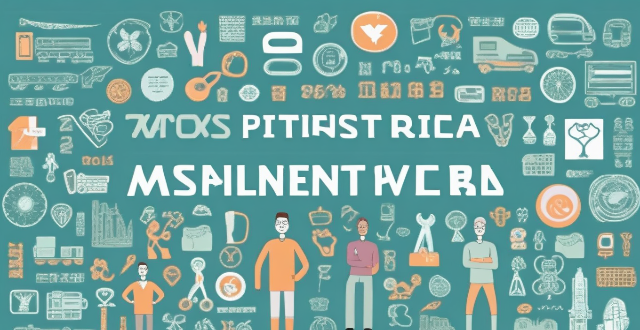
Can sports be used as a tool for social change and community development ?
This text discusses the potential of sports as a tool for social change and community development. It highlights how sports can break down barriers, promote health and well-being, and contribute to education and personal development. The article also explores how sports can address social issues, empower communities economically, and promote peace and reconciliation. However, it emphasizes the need for equitable resource allocation, accessibility, and sustainability to fully realize the potential of sports in societal transformation.
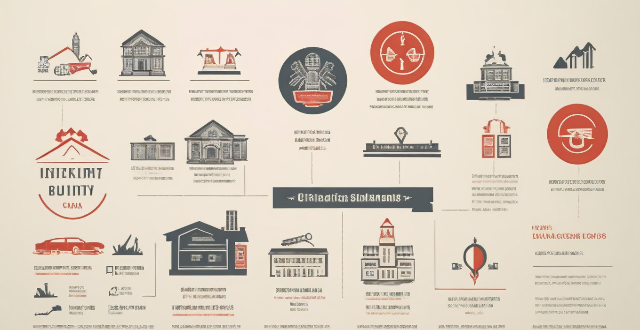
What role does financial literacy play in reducing economic inequality ?
Financial literacy is a crucial factor in reducing economic inequality, as it enables individuals to make informed decisions about their money and increase wealth accumulation. Improving financial literacy can lead to reduced poverty rates by empowering low-income households to make smarter financial choices. Strategies for improving financial literacy include educational programs, access to financial services, and community outreach initiatives. By implementing these strategies, we can create a more equitable society where everyone has the opportunity to achieve financial stability and prosperity.

What role does sociology play in understanding and addressing climate change ?
Sociology plays a crucial role in understanding and addressing climate change by analyzing the social, cultural, and economic factors that contribute to the problem. Sociologists study social structures and norms, power dynamics and inequality, culture and ideology, and their impact on individual behavior related to climate change. They also conduct research and collect data on various aspects of climate change, educate the public about its social implications, analyze existing policies, advocate for new ones that prioritize social justice and equity, and collaborate with other disciplines to address climate change holistically. By identifying potential areas for intervention and generating innovative solutions, sociologists can help create a more equitable and sustainable future for all.

What are the key differences between the cultures of different South American countries ?
Key differences between the cultures of different South American countries include language, music and dance, food, religion, and social structure. Each country has its own unique characteristics shaped by factors such as history, geography, and social structure.

How does climate change exacerbate gender inequality in access to resources and decision-making ?
Climate change exacerbates gender inequality by disproportionately affecting women and girls in access to resources and decision-making. Women often have limited access to resources such as water, food, and land due to cultural norms, lack of education, and poverty. They also have limited participation in decision-making processes due to cultural norms and lack of education. To address these issues, it is important to prioritize gender equality in climate change adaptation and mitigation strategies by ensuring that women's voices and experiences are taken into account when making decisions.

What are the consequences of not having adequate environmental legislation ?
The text discusses the importance of adequate environmental legislation and its absence's consequences. It outlines the impact on environmental degradation, human health, economic stability, and social welfare. The introduction emphasizes the need for such laws for sustainable development and planet protection. Four main points are discussed: 1. Environmental Degradation includes loss of biodiversity, pollution, deforestation, and ocean acidification. 2. Human Health Impacts cover respiratory problems, waterborne diseases, and food safety concerns. 3. Economic Implications involve resource depletion, job losses, and tourism decline. 4. Social Welfare Issues include inequality, displacement, and conflict over resources. The conclusion stresses the urgency for governments worldwide to implement and enforce strong environmental laws for a sustainable future.

What are the best practices for social media advertising ?
Best practices for social media advertising include defining goals, understanding the audience, choosing the right platform, creating compelling content, optimizing for mobile devices, testing and refining ads, monitoring budget, leveraging social proof, and staying up-to-date with platform changes. These strategies help achieve better results in terms of engagement, lead generation, and sales.

How does climate change impact social justice ?
Climate change has significant impacts on social justice, affecting marginalized communities, health outcomes, economic stability, migration patterns, and gender equality. Mitigation efforts to reduce greenhouse gas emissions and adaptation strategies to build resilience against the impacts of climate change are necessary to create a more equitable future for all.

Can social media platforms be used to enhance social harmony ?
Can social media platforms be used to enhance social harmony? The text discusses the positive impact of social media on social harmony, including connectivity and communication, sharing information and ideas, and civic engagement and activism. However, it also highlights challenges and risks such as misinformation and fake news, online harassment and cyberbullying, and echo chambers and polarization. The conclusion states that social media platforms have the potential to enhance social harmony, but challenges must be addressed to ensure their positive impact.
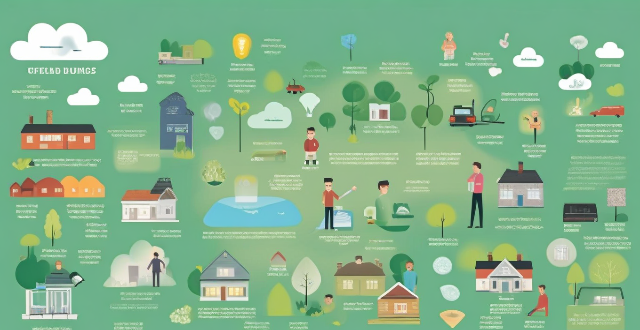
What are the social implications of environmental degradation ?
The article discusses the social implications of environmental degradation, including health impacts such as air pollution and water pollution, economic impacts such as loss of biodiversity and job losses, social impacts such as displacement and cultural loss, and political impacts such as conflicts and refugees. It emphasizes the need for collective action to address these challenges and protect the natural environment for future generations.

How does social harmony impact economic development and stability ?
Social harmony is essential for economic development and stability, as it increases productivity, reduces conflict, improves governance, attracts foreign investment, and enhances social cohesion.

What are the social consequences of natural disasters caused by climate change ?
Natural disasters, intensified by climate change, have extensive social repercussions affecting health, economy, social order, education, and the environment. Immediate impacts include physical harm and mental distress, while long-term effects range from economic setbacks to environmental degradation. Addressing these consequences necessitates a multifaceted strategy encompassing emergency measures, recovery efforts, and sustainable development practices to foster community resilience.

What are the psychological effects of social media on teenagers ?
This article discusses the psychological effects of social media on teenagers, including increased anxiety and depression due to comparison with others' lives, fear of missing out (FOMO), cyberbullying, disrupted sleep patterns, decreased face-to-face interaction, body image issues, and cyberchondria. Parents and educators should monitor their children's social media usage and encourage healthy habits to help them navigate these challenges.

Can you provide examples of female-driven social enterprises that combine business with philanthropy ?
Female-driven social enterprises are combining business with philanthropy to create positive change in society, empowering marginalized individuals and promoting sustainability. Examples include Samasource, Prodigy Finance, Kiva, S'well, and Girlfriend Collective. These organizations demonstrate the power of women in driving social impact through sustainable business practices.

How should a woman respond to compliments in a social situation ?
The text is a topic summary on how women should respond to compliments in social situations. It suggests that they acknowledge the compliment, be sincere, optionally return the compliment, keep the conversation going, avoid being defensive, and maintain eye contact. The tips aim to help women navigate this aspect of social interactions effectively and leave a positive impression on others.